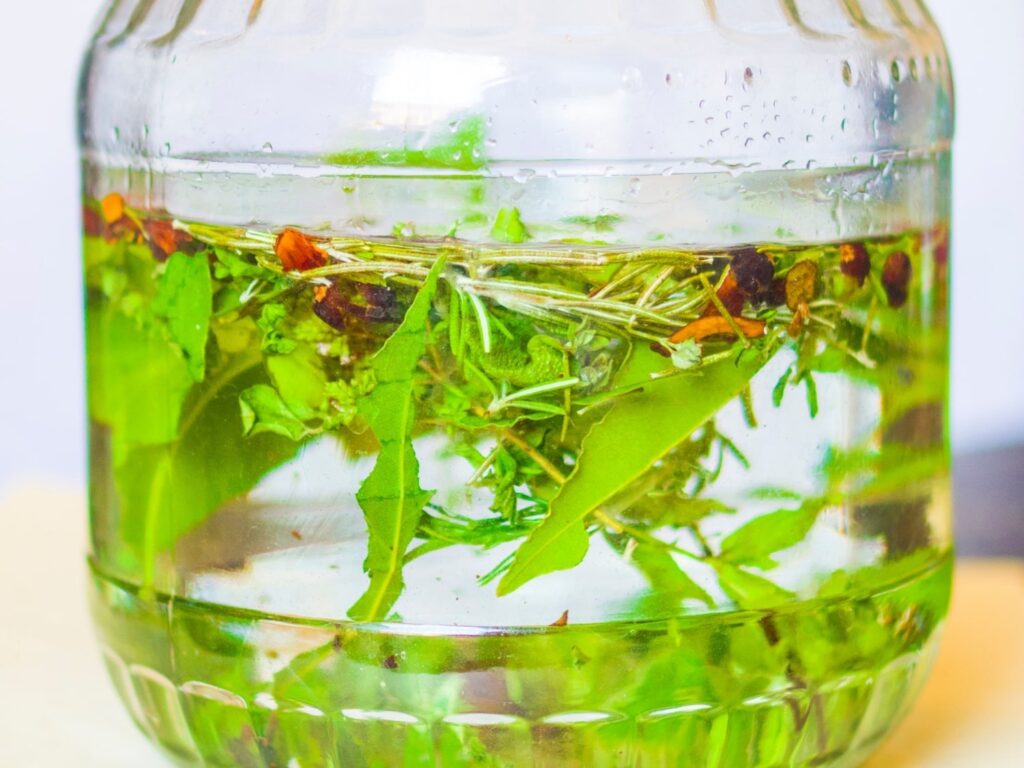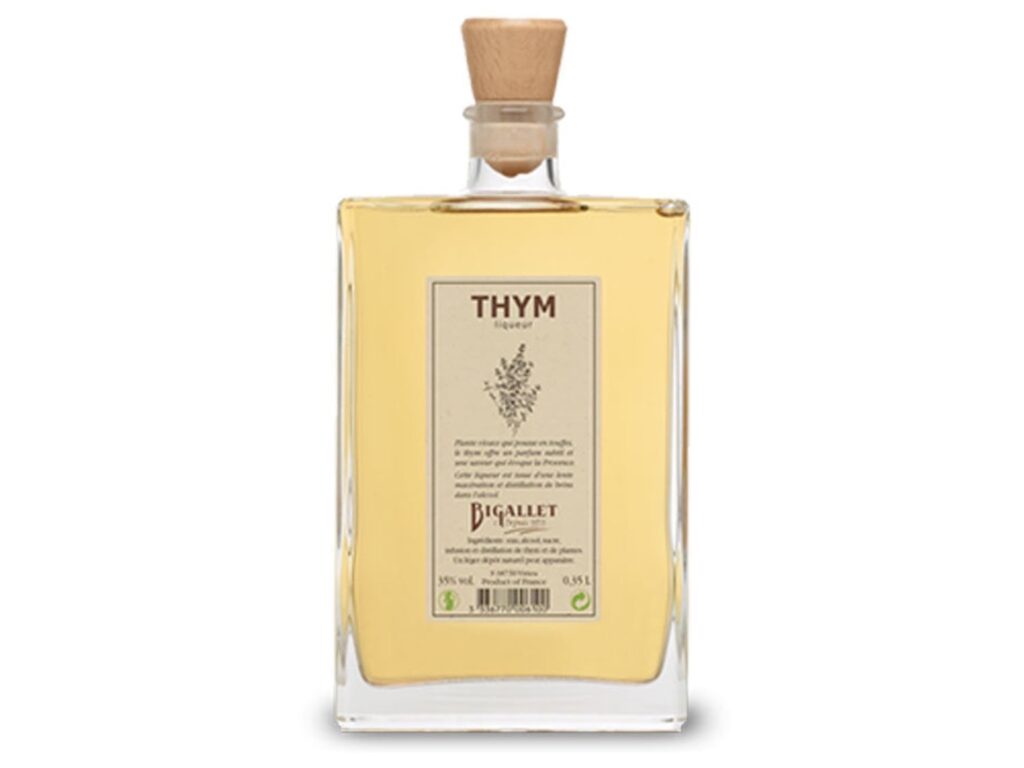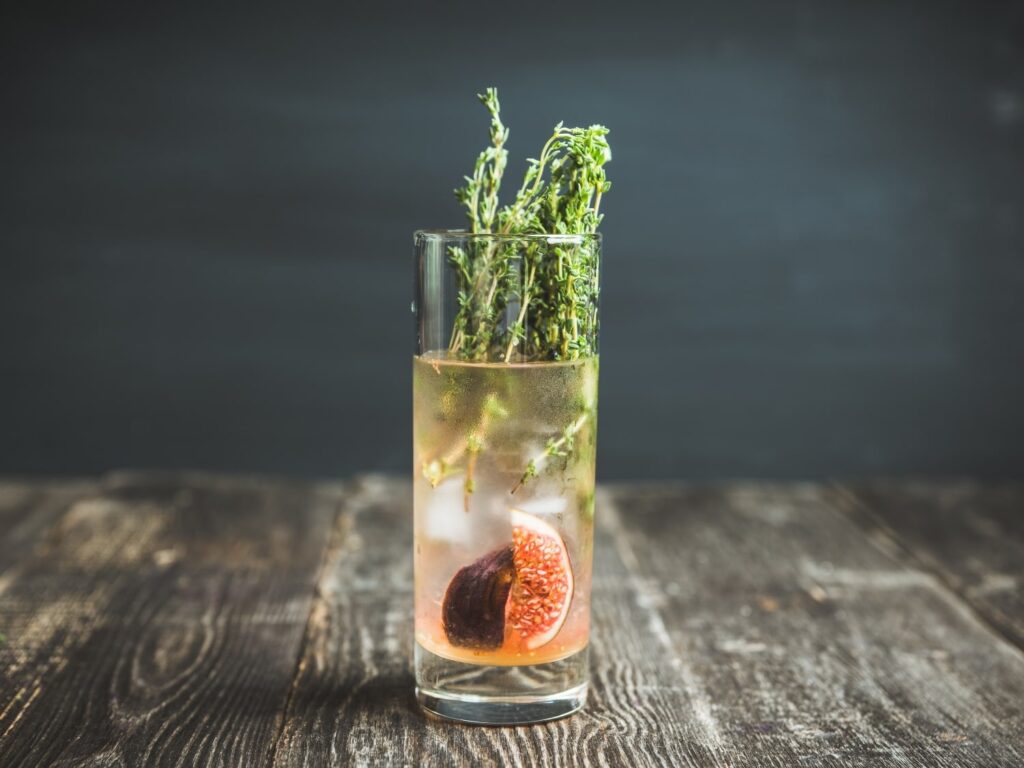
Thyme liqueur may not be the most well-known herbal spirit, but it carries a fascinating history, a distinctive aromatic profile, and a growing fan base among connoisseurs of fine liqueurs and artisanal cocktails. With its earthy, slightly minty flavor and its links to ancient herbal medicine, thyme liqueur is more than just a drink—it’s a celebration of the Mediterranean spirit and a reflection of a centuries-old tradition of blending herbs and alcohol.
This in-depth article explores the origins, production, flavor profile, uses, and cultural significance of thyme liqueur, and why it deserves a place on your bar shelf.
What Is Thyme Liqueur?
Thyme liqueur is a distilled or macerated alcoholic beverage made primarily using the thyme herb (Thymus vulgaris), often combined with other botanicals, neutral or flavored spirits, and sugar. The resulting liqueur captures the herbaceous, slightly spicy, and medicinal essence of thyme. It may be enjoyed neat, over ice, or used in cocktails and culinary recipes.
While thyme is commonly used as a cooking herb, its transition into the world of spirits is a natural progression—especially in Mediterranean cultures where herbs like thyme, rosemary, and oregano are considered essential not only in the kitchen but also in traditional medicine and liqueur making.
Historical and Cultural Origins of Thyme Liqueur
Thyme has been revered since ancient times. The ancient Egyptians used it in embalming practices, while the Greeks burned it as incense in temples, believing it to be a source of courage and purification. The Romans adopted the herb for culinary and medicinal use, and in medieval Europe, thyme was associated with vitality and protection.
The idea of turning thyme into a liqueur likely stems from early monastic and apothecary traditions in Europe, where monks and herbalists would macerate herbs in alcohol to create medicinal tinctures. Thyme, known for its antiseptic and expectorant qualities, was a prime candidate for such infusions.
Though thyme liqueur has never reached the global prominence of chartreuse or Benedictine, it is still produced regionally, especially in parts of France, Spain, Greece, and Italy, where wild thyme grows abundantly in the mountains and fields.
How is Thyme Liqueur Made?
The production of thyme liqueur varies depending on the region and the specific recipe, but the general process includes:
1. Harvesting the Thyme
Fresh thyme, often wild or organically grown, is harvested during its peak season—usually in spring or early summer—when the essential oils are at their highest concentration.
2. Maceration or Distillation of Thyme Liqueur
There are two primary methods used:
Maceration: The thyme is steeped in neutral alcohol for several days or weeks. This process extracts the essential oils and flavors from the herb.
Distillation: In some artisanal or commercial liqueurs, the thyme and other botanicals are distilled with alcohol to create a more refined and aromatic spirit.
Often, other herbs such as rosemary, sage, mint, or citrus peels may be added to create a more complex flavor profile.
3. Sweetening the Thyme Liqueur
Once the extraction is complete, sugar or honey is added to balance the intense herbal notes. The sweetness level varies, with some liqueurs being dry and others leaning toward dessert liqueur status.
4. Aging Thyme Liqueur
Some premium thyme liqueurs are aged in glass, ceramic, or stainless steel containers for several months to allow the flavors to harmonize.
5. Bottling of Thyme Liqueur
The final product is filtered and bottled, typically with an alcohol content ranging from 20% to 35% ABV.
Flavor Profile of Thyme Liqueur
Thyme liqueur has a distinctive taste that is both aromatic and slightly medicinal. Key flavor notes include:
Herbaceous: The dominant thyme flavor is pungent and earthy, reminiscent of fresh greenery.
Minty and Spicy: Depending on the thyme variety, you may detect a subtle menthol or spice kick.
Floral: Some expressions have lavender-like undertones, especially if blended with other Mediterranean herbs.
Sweet and Smooth: The added sugars mellow the sharp herbal notes, creating a balanced sipping experience.
The finish is often long and warming, leaving a lingering herbal freshness on the palate.
Popular Brands and Regional Varieties
Thyme liqueur is not mass-produced by many global brands, but it has a strong presence among craft and artisanal producers in Europe:
Thym Liqueur (France)

Small distilleries in Provence and Corsica craft thyme liqueurs using native wild thyme and other Provençal herbs.
Licor de Tomillo (Spain)
Particularly found in southern Spain, especially Andalusia and Murcia, this variety is often made using wild mountain thyme.
Cretan Thyme Liqueur (Greece)
Some Greek distillers use thyme from the hills of Crete, often blending it with raki or tsikoudia as a base spirit.
These products are sometimes difficult to find outside their regions of origin but are increasingly sought after by spirit enthusiasts and mixologists.
Thyme Liqueur Culinary and Cocktail Uses

Thyme liqueur is a versatile spirit that can be enjoyed in many ways:
1. Sipped Neat or On the Rocks
For the purist, thyme liqueur is best savored slowly in small quantities to appreciate its full herbal bouquet.
2. In Cocktails
It adds an herbaceous twist to both classic and modern cocktails. Try these examples:
- Thyme Sour: Thyme liqueur, lemon juice, and egg white.
- Herbal Mule: Thyme liqueur, vodka, lime juice, and ginger beer.
- Mediterranean Martini: Gin, thyme liqueur, and dry vermouth.
Great! Here’s a custom cocktail recipe featuring thyme liqueur—a unique blend of herbal depth and citrus brightness.
Thyme & Honey Cocktail Recipe
A smooth, refreshing cocktail that brings out the aromatic power of thyme liqueur with gentle hints of lemon and wildflower honey.
Ingredients:
- 45 ml (1.5 oz) thyme liqueur
- 30 ml (1 oz) London dry gin (or vodka for a softer taste)
- 20 ml (0.75 oz) freshly squeezed lemon juice
- 15 ml (0.5 oz) honey syrup (1:1 honey and warm water, mixed)
- 2 dashes orange bitters (optional)
- Fresh thyme sprig (for garnish)
- Ice
Instructions:
- Make the honey syrup. Combine equal parts honey and warm water. Stir until fully mixed. Allow to cool.
- Mix the cocktail. In a cocktail shaker, add thyme liqueur, gin, lemon juice, honey syrup, and bitters. Fill with ice.
- Shake it well. Shake vigorously for 15–20 seconds until well chilled.
- Strain and serve. Fine strain into a chilled coupe glass or serve over fresh ice in a rocks glass.
- Garnish. Lightly slap a fresh thyme sprig between your palms to release the oils and float it on top of the drink.
Tasting Notes:
- Aroma: Fresh thyme and citrus with a hint of sweetness
- Flavor: Balanced herbal notes from the thyme liqueur, rounded by floral honey and brightened by lemon
- Finish: Clean, zesty, and slightly warming from the gin
3. Culinary Applications
Chefs may use thyme liqueur in savory sauces, glazes for meats (especially lamb or chicken), or even in desserts such as herbal sorbets or panna cotta.
Is Thyme Liqueur Healthy?
While thyme liqueur is alcoholic and not a health product per se, its roots in traditional herbal medicine still linger. Thyme is rich in thymol, a compound with antiseptic, antifungal, and antibacterial properties. Historically, thyme infusions were used for sore throats, coughs, and digestion.
When consumed in moderation, thyme liqueur may serve as a soothing post-meal digestif. However, these benefits are anecdotal and not scientifically endorsed in alcoholic form.
Where to Buy and How to Store Thyme Liqueur?
Thyme liqueur can be purchased at specialty liquor stores, Mediterranean markets, or online from artisanal distilleries. Always look for brands that use natural herbs and traditional production methods.
Store thyme liqueur in a cool, dark place away from direct sunlight. Once opened, it should retain its flavor for at least 1 to 2 years, although fresh herbal notes may slowly fade over time.
Conclusion
Thyme liqueur is a hidden gem in the world of herbal spirits. With its bold, earthy flavor, rich cultural history, and versatile uses in cocktails and cuisine, it offers a unique tasting experience for adventurous drinkers and herbal enthusiasts alike. Whether you discover it while traveling through the hills of Provence or sipping a handcrafted cocktail at an upscale bar, thyme liqueur invites you to slow down, savor, and enjoy the natural bounty of the Mediterranean in every drop.
If you’re looking to explore new spirits beyond the mainstream, thyme liqueur is an excellent place to start—steeped in tradition, full of flavor, and quietly waiting to be rediscovered.
